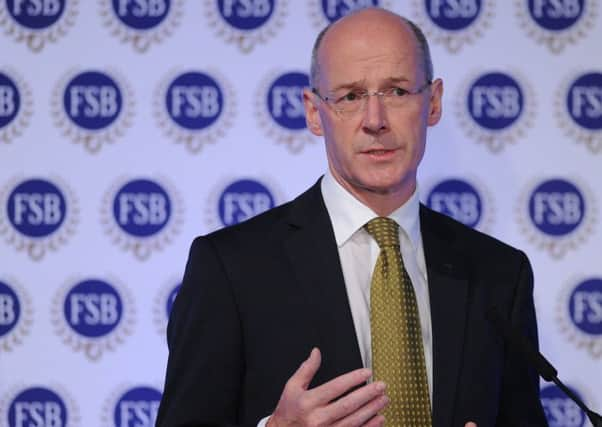Swinney plays down Salmond independence comments


Over the weekend, First Minister Alex Salmond and former SNP deputy leader Jim Sillars both suggested that independence could be achieved with a parliamentary majority in Holyrood instead.
The comments expressed a growing sense of grievance and disappointment with the result which saw the Yes campaign lose by 55 per cent to 45 per cent, but leading figures claim voters were “tricked” by the pro-UK parties offering more powers to the Scottish Parliament.
Advertisement
Hide AdAdvertisement
Hide AdIn an interview Mr Salmond said: “There is a parliamentary route where people can make their voice heard as well so a referendum is only one of a number of routes.”
Mr Sillars was more explicit when he tweeted: “Let Yes assert new indy rule – no more ref – majority votes and seats at Holyrood 2016 enough.”
Scottish Labour leader Johann Lamont described Mr Salmond’s comments as “undemocratic” and accused him of wanting a “coup” to achieve independence.
However, asked about Mr Salmond’s comments, Mr Swinney, one of the SNP’s leading moderates who was instrumental in getting the referendum route agreed by his party as the way to achieve independence, sought to calm speculation that the party is about to change tack.
Asked about Mr Salmond’s comments, he said: “What Alex Salmond is saying is there are many ways in which additional powers can be acquired to the Scottish Parliament, and that is the agenda that we will push on to secure those powers and to guarantee that people in Scotland have the ability to take more of the decisions that affect their lives and in particular the decisions that enable us to tackle the poverty that is a blight on our society.”
SEE ALSO